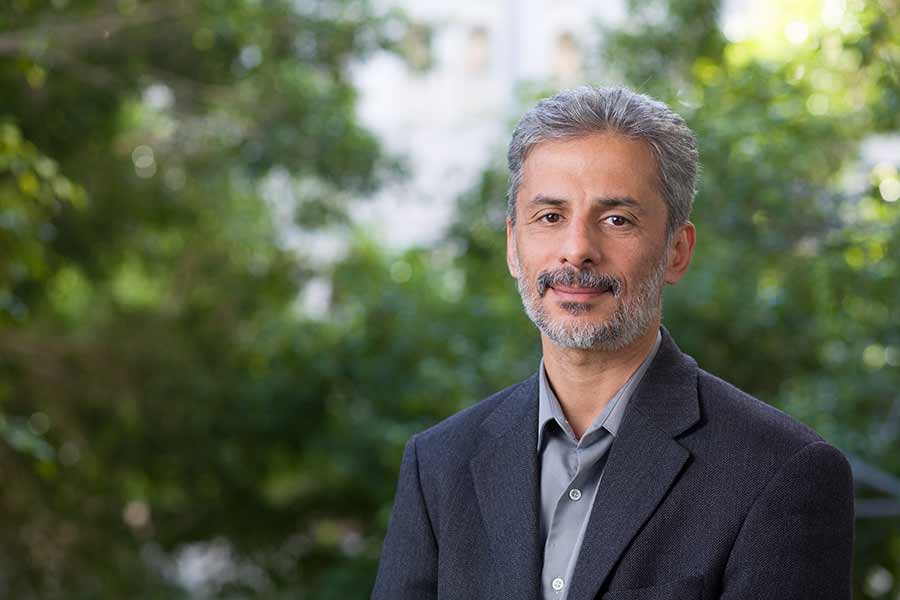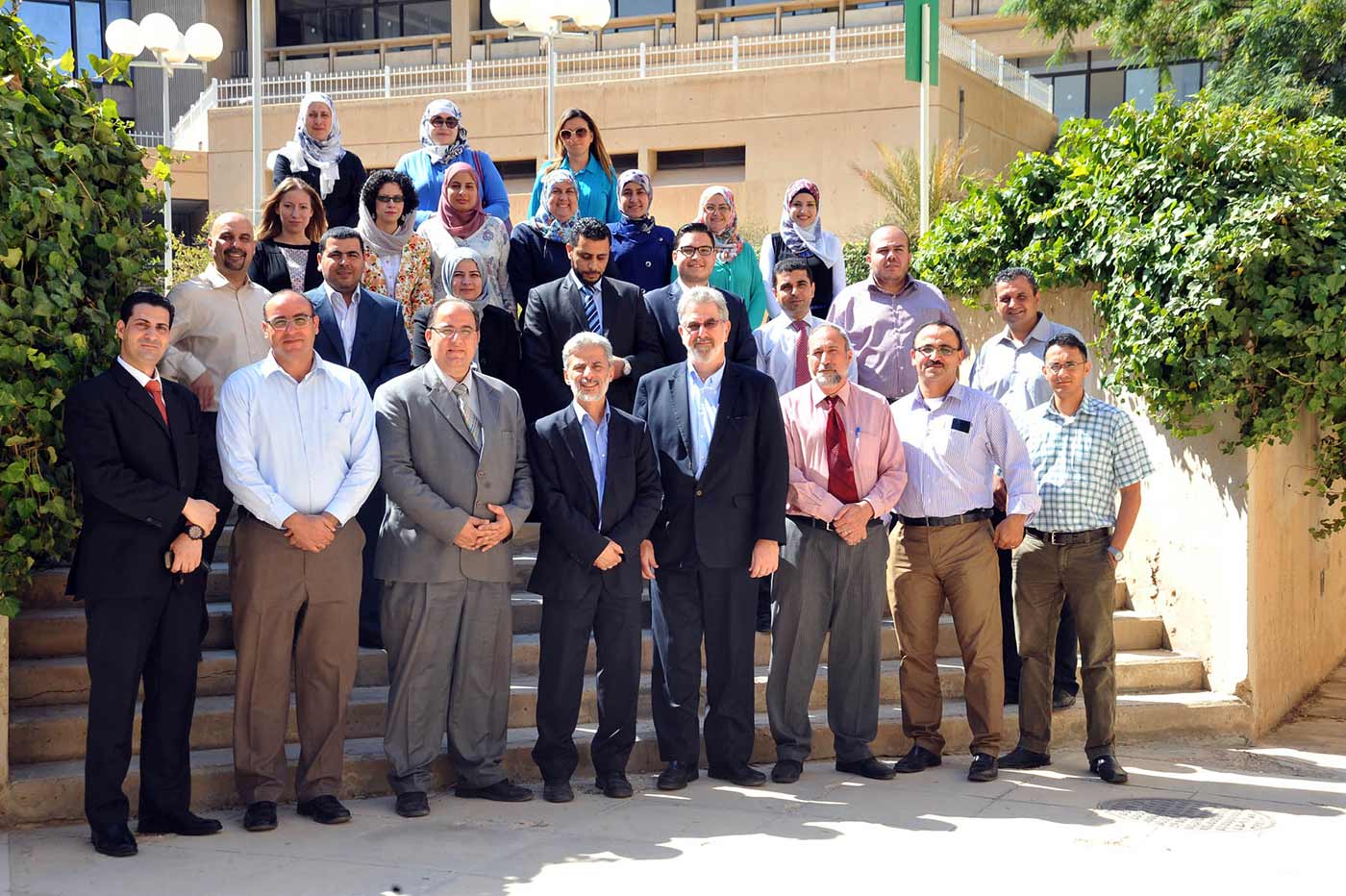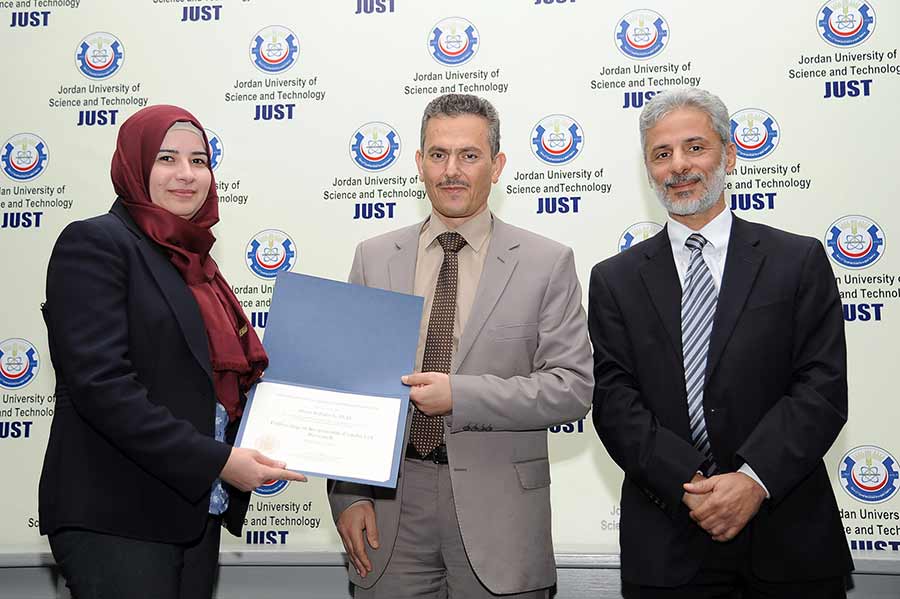Acting Student and Bioengineering Alumna Awarded Soros Fellowship for New Americans
Awards & Accolades
By:
Published Date
By:
Share This:

Wael Al-Delaimy
Wael Al-Delaimy grew up in Iraq, where he trained to become a medical doctor and epidemiologist. He worked in Jordan, studied in New Zealand and at Harvard University, joined the International Agency for Research in Cancer (part of the World Health Organization) and eventually arrived in 2003 at UC San Diego, where he is now professor and chief of the Division of Global Health in the Department of Family Medicine and Public Health in the School of Medicine.
In the United States, scientists and would-be scientists are expected to conduct themselves and their work ethically. Indeed, the National Institutes of Health (NIH) and other funding agencies require institutions to provide appropriate training and oversight to ensure responsible conduct of research, otherwise known as RCR.
Early in his career, Al-Delaimy knew little about RCR. “Coming from the Middle East, like in most of the less developed countries, there are no standards or regulations and no training in responsible conduct of research,” he said.
But Al-Delaimy is determined to help change that reality as principal investigator and director of a novel UC San Diego fellowship program, in collaboration with the Jordan University of Science and Technology (JUST), to teach academics and researchers in the Middle East and North Africa “where there is no support, funding or political will to develop such standards in RCR or understanding of its importance for research development.”

Group picture of fellows graduating with instructors. Wael Al-Delaimy is center front in dark suit.
The program, with five-year funding from the NIH Fogarty International Center R25 Training program, is one of just 23 in the U.S. and only the second based on the West Coast. (The other program is at Stanford.) The UC San Diego program just graduated its first class: 16 faculty from four different Jordanian universities and three graduate students.
Al-Delaimy recently flew to Jordan for the graduation ceremony. The president of JUST changed his schedule to personally hand out the certificates and one of the country’s biggest newspapers, Ad-Dustour (The Constitution), covered the event.
For Al-Delaimy, it was a gratifying moment, the result of years of labor and intense competition to apply and win the NIH grant. He had proposed that the fellowship focus on chronic diseases—diabetes, cardiovascular ailments, cancer—that are rising at alarming rates in the Middle East, and which are key areas of interest in the Division of Global Health at UC San Diego School of Medicine. If local solutions were to be found for this epidemic, he argued, good, sound science would be required.
“RCR is about good research methodology, which requires good training in such methodology, and then conducting such research based on internationally accepted standards,” Al-Delaimy said.
The 12-month fellowship program is rigorous: 16 units of graduate level instruction and practice spread over five different courses. One course is taught face-to-face in Jordan. Three are taught online through UC San Diego Extension. The last is a hands-on summer practicum.

Abeer Rababah, assistant professor of pharmacy at JUST and graduating fellow, handed certificate by university president Omar Al-Jarrah (center), with Wael Al-Delaimy (right).
“The fellows, who are screened and interviewed to admit only the top and most committed academics and graduate students, come from every health-related background, from nursing, dentistry, pharmacy, medicine, biological sciences and allied health sciences,” said Al-Delaimy, who teaches epidemiology research methods and ethics. “They learn how to design, conduct and interpret epidemiology findings in the context of chronic diseases. At the same time, they get exposed to good and bad examples of research conduct in the form of case studies. During the practicum they get matched with one of the 32 mentors we have lined up for them, including some of our own here at UC San Diego to work on a specific ethics-related research topic.” His co-instructors and country co-directors include professors Karen Al-Zoubi and Omar Khabour from JUST and Kenneth Goodman at the University of Miami.
For fellows, the educational experience is free. They are provided with laptops, free WiFi and funds to cover practicum expenses. Al-Delaimy said U.S. students don’t get similar ethics training outside of a few courses or if they enroll in a Master’s degree program in bioethics.
“I can't imagine that this is typical for courses in Jordan; it's certainly not typical in the USA,” wrote Michael Kalichman, professor in the Department of Pathology and founding director of the UC San Diego Research Ethics Program, to Al-Delaimy after giving two program lectures to fellows last year. “The fellows in your program are clearly extraordinarily committed, their level of engagement was nothing short of astonishing.”
Of course, the first graduating class is just the start, Al-Delaimy said. “The trainees are now part of a group who will grow by the end of the program to become 120 strong RCR leaders at their respective universities. This year, we accepted fellows from Egypt and Iraq and we plan to expand to other countries in Middle East and North Africa who speak the same language. These fellows will serve on ethics committees, conduct epidemiology research in chronic diseases and mentor graduate students.”
It’s personal for Al-Delaimy.
“Amid all of the negative news of war, destruction and humanitarian crises in that region, this is something positive for research and academia and eventually the health of the public,” he said. “That is something no one can disagree about.”
Share This:
Keep up with all the latest from UC San Diego. Subscribe to the newsletter today.